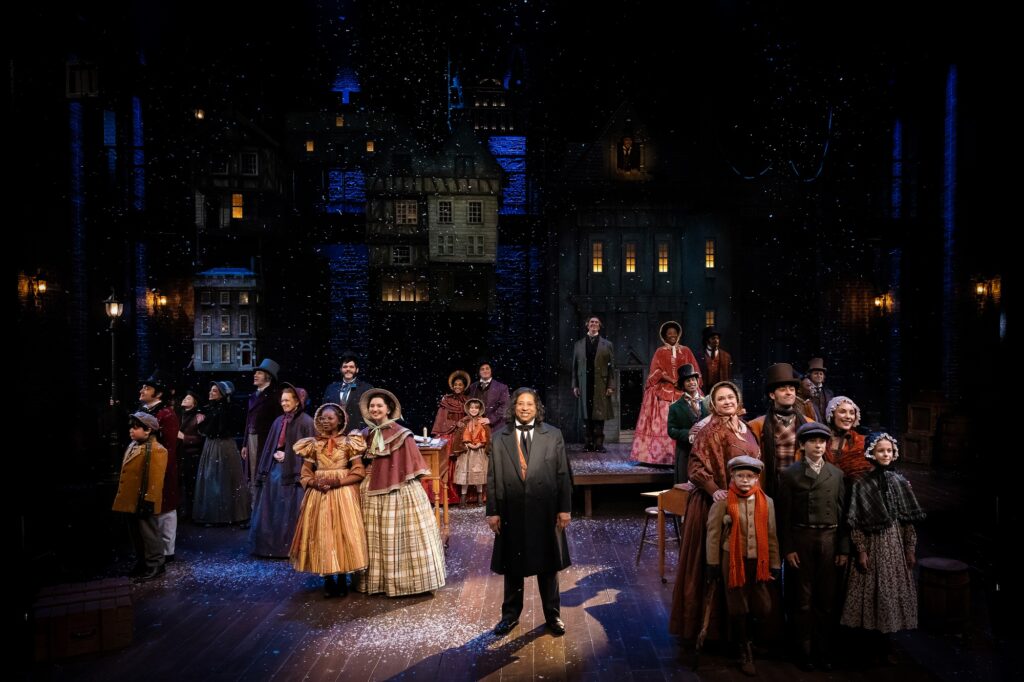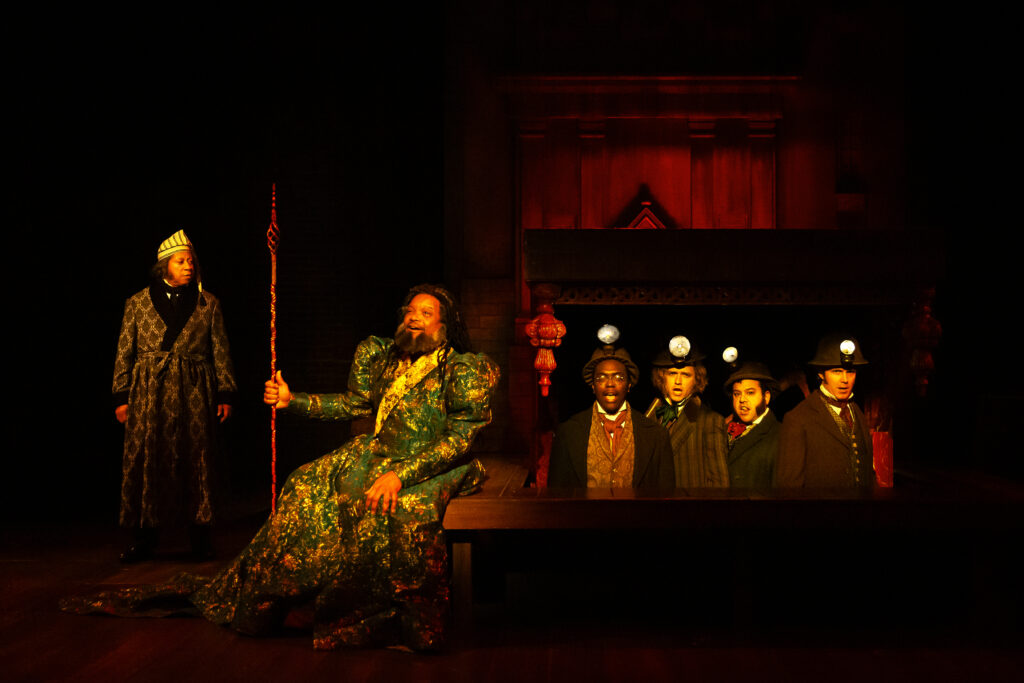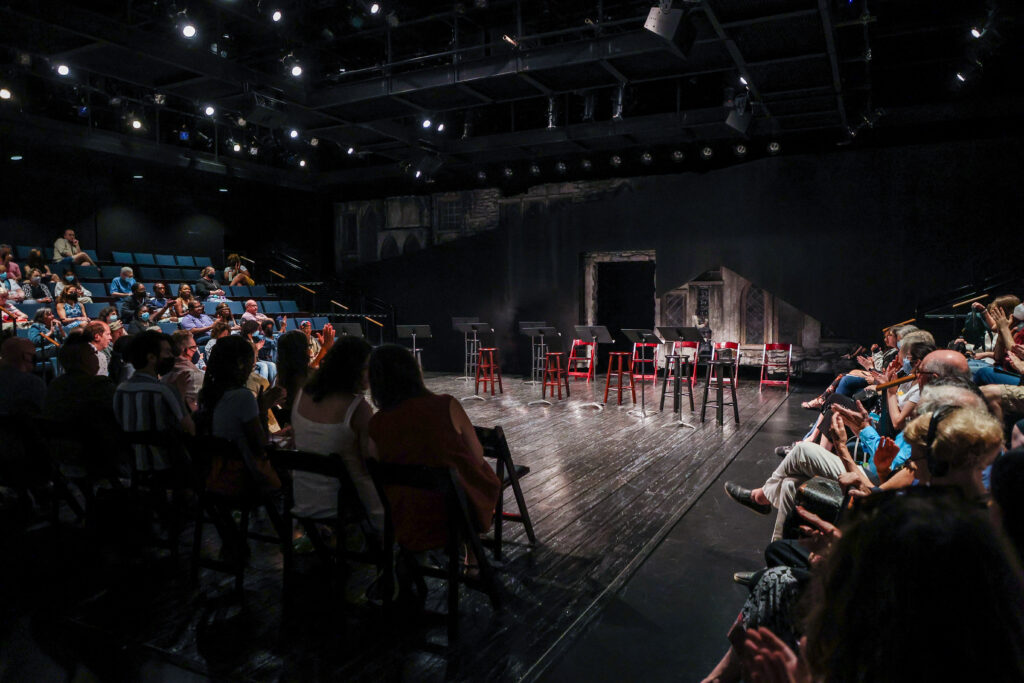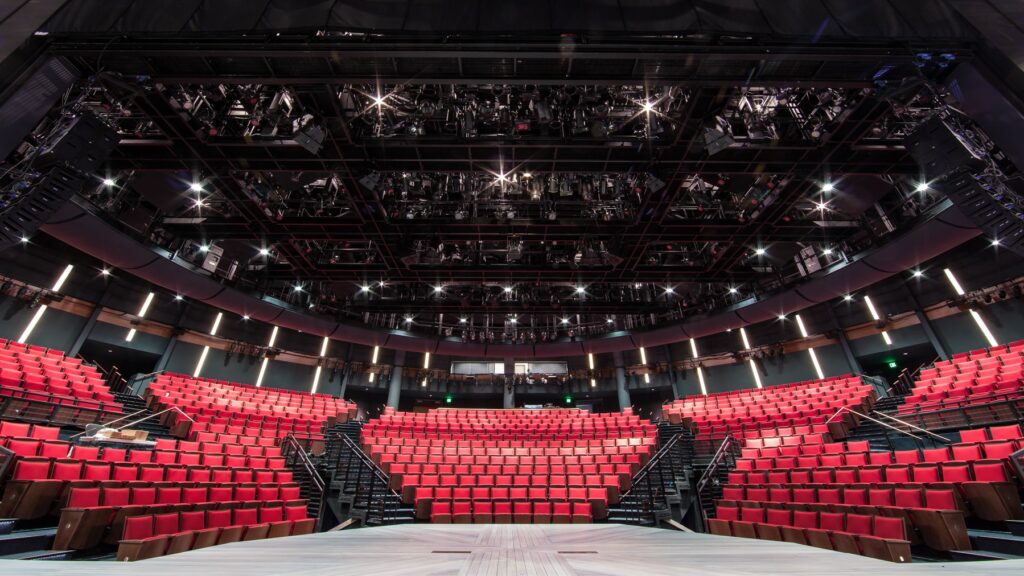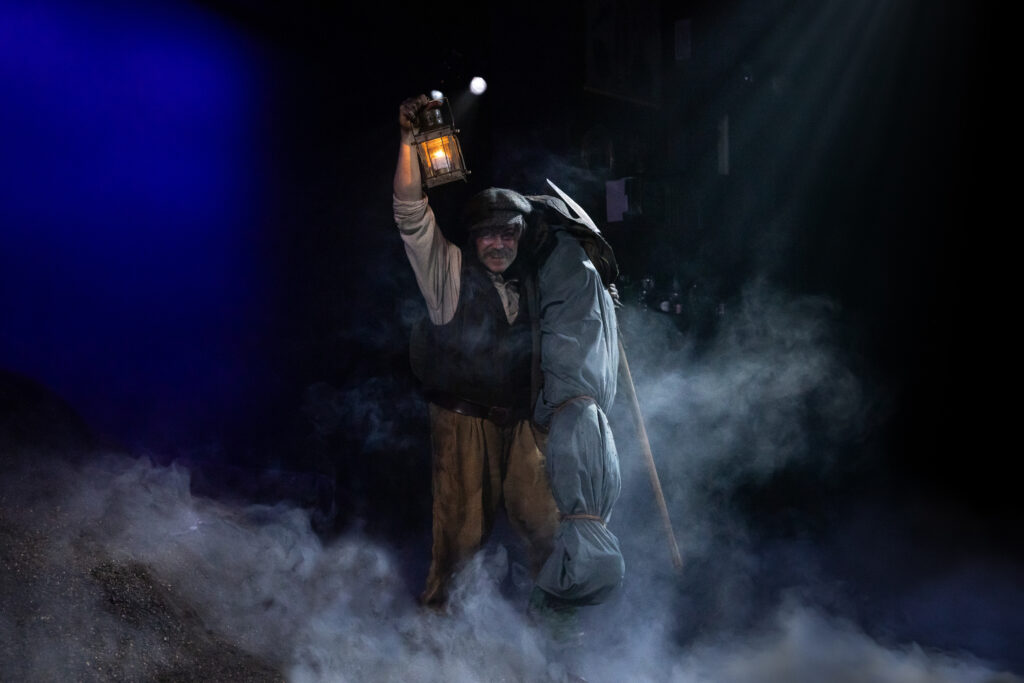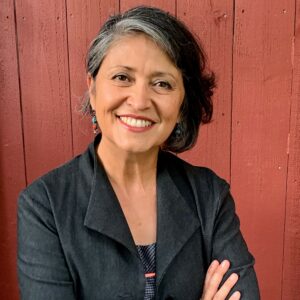
Audiences familiar with Noël Coward’s iconic comedy, Private Lives, will recall the play’s romantic setting. First, a pair of balconies overlooking the French seaside. Then, a lavish apartment in the heart of Paris. These settings evoke a world of fantasy. They suggest an element of frivolous luxury in the lives of Amanda and Elyot. In Alley Theatre’s current production, Director KJ Sanchez chose to reset the piece in Latin America. First, on the shores of Mar del Plata, Argentina. Then, in an Art Deco-style apartment in Montevideo, Uruguay. But what inspired this switch?
According to the director, inspiration struck while watching videos of Argentine tango. The passion, the deep connection, and the ever-shifting power dynamics of this dance all inspired memories of Amanda and Elyot, and their intense interplay of love and anger. Noël Coward’s signature verbal wit, characterized by lively sparring between two lovers, is mirrored in the precise physicality of this dance. To realize this connection, Houston tango instructor Susana Collins trained all four actors in the Alley’s production.
With tango as a starting point, KJ began to explore the resetting Private Lives in Argentina. Surprisingly, this setting, over 7,000 miles from France, shares a number of key elements with the original, drawing interesting historical parallels between two seemingly disparate cultures. In the early 20th century, Argentina was one of the wealthiest countries on earth, due to a massively influential agricultural industry, which sent exports of sheep’s wool and wheat across the world. In fact, Argentinians were so stereotypically wealthy that ‘riche comme un Argentin’ became a common phrase in the French-speaking world. In other words, ‘as rich as an Argentinian.’ This phrase, though popular, may in fact have been somewhat misleading. It wasn’t the average Argentinian who controlled this wealth, but a small subset of land-owning aristocrats who profited greatly from the agricultural boom. In fact, by the time Private Lives was written, there was a growing animosity in Argentina against the ultra-wealthy.
This is what makes Argentina the perfect setting for Private Lives. In many ways, it is precisely this moneyed, idle class that Coward is skewering in his work. Though he himself rose to fame and eventual wealth, Coward grew up in a solidly middle-class household. He was introduced to high society as a young theatre prodigy and was therefore keenly aware of the hypocrisies, frivolity, and isolation of the upper classes. To him, they proved an interesting case study in human nature. How does someone act when they have nothing to do but entertain themselves? There is something essential in this question, which transcends time and place. This is one of the reasons Private Lives persists in the modern imagination—and why its observations on love feel equally at home in Argentina, as well as France.




